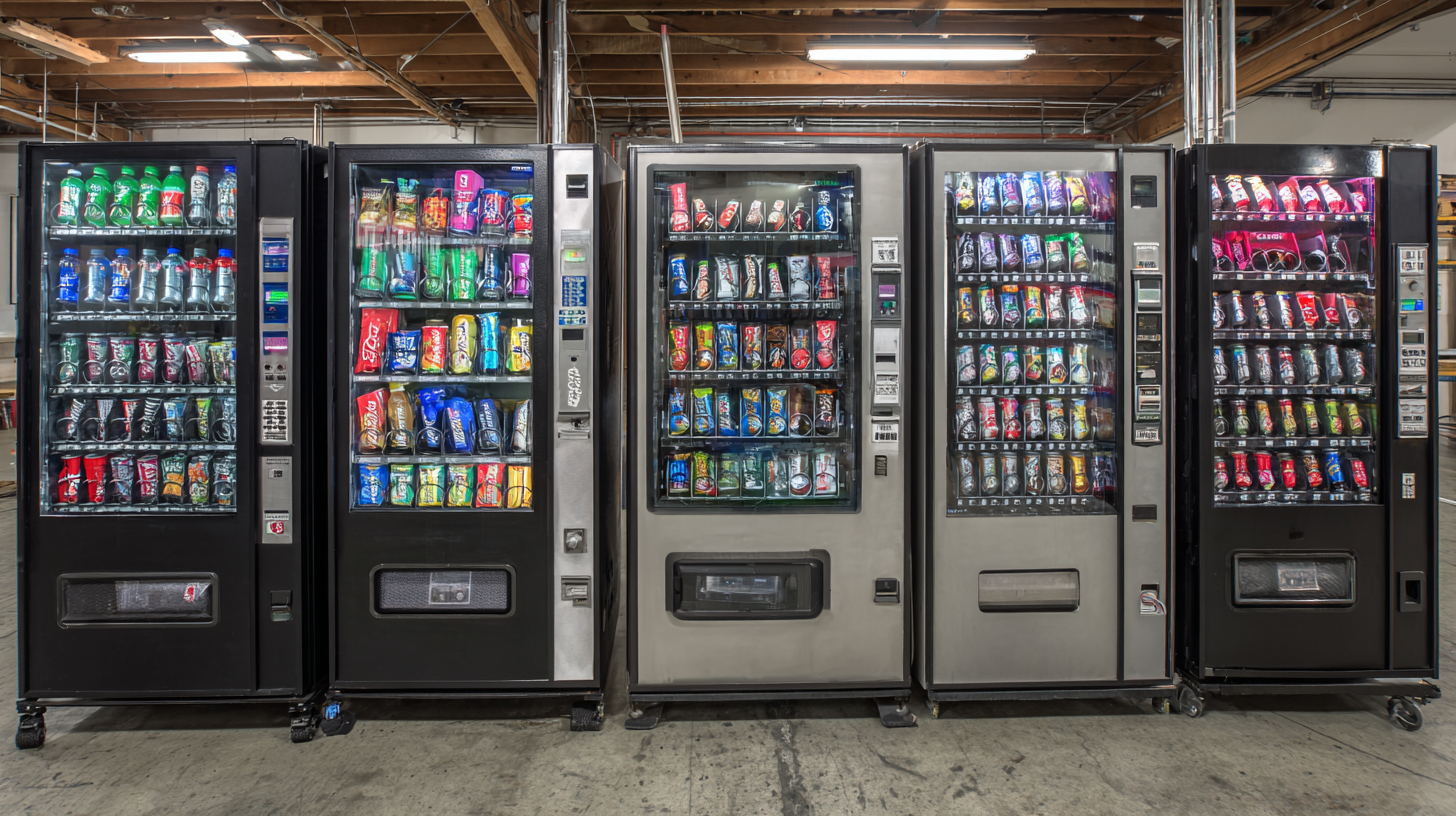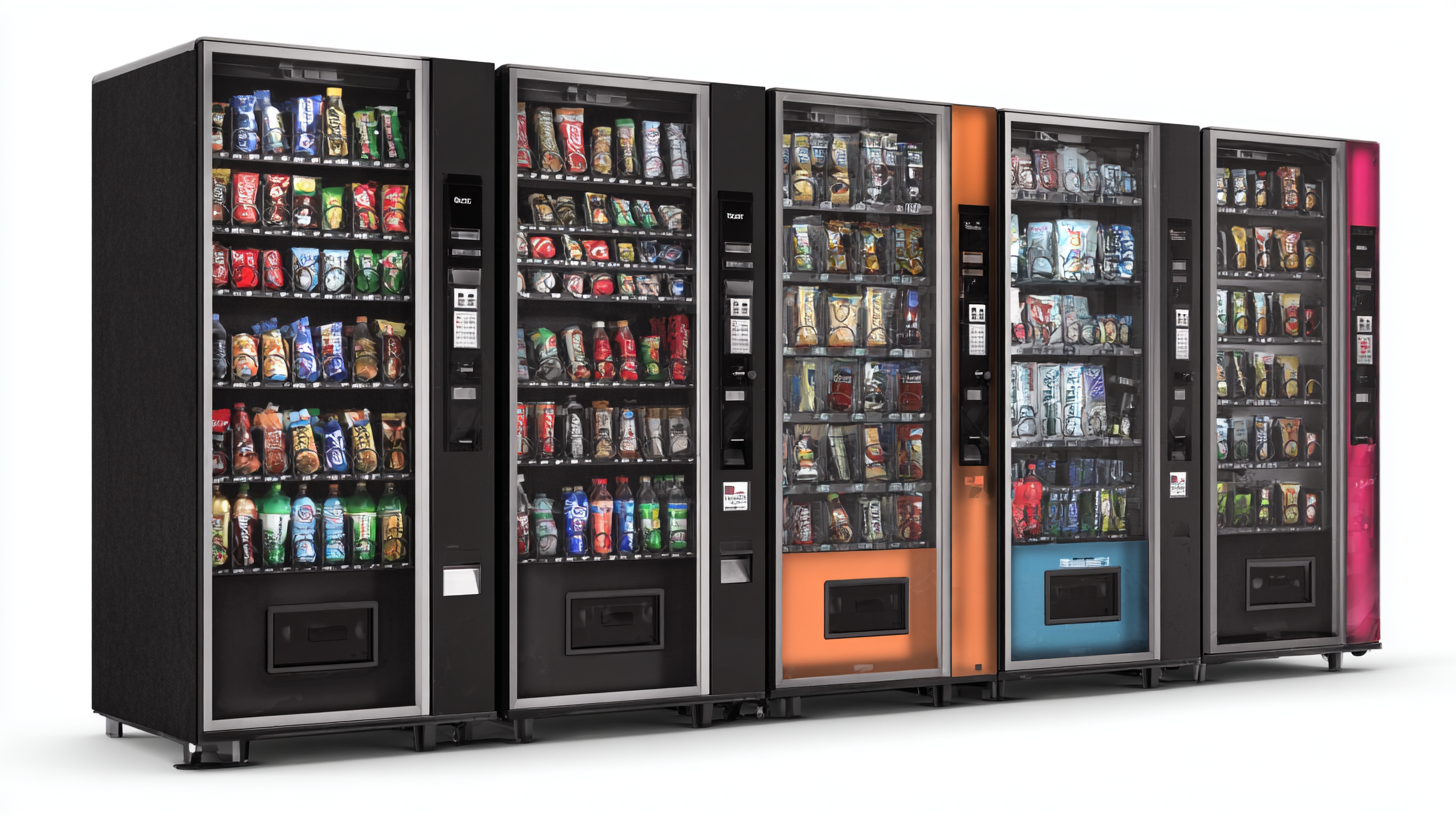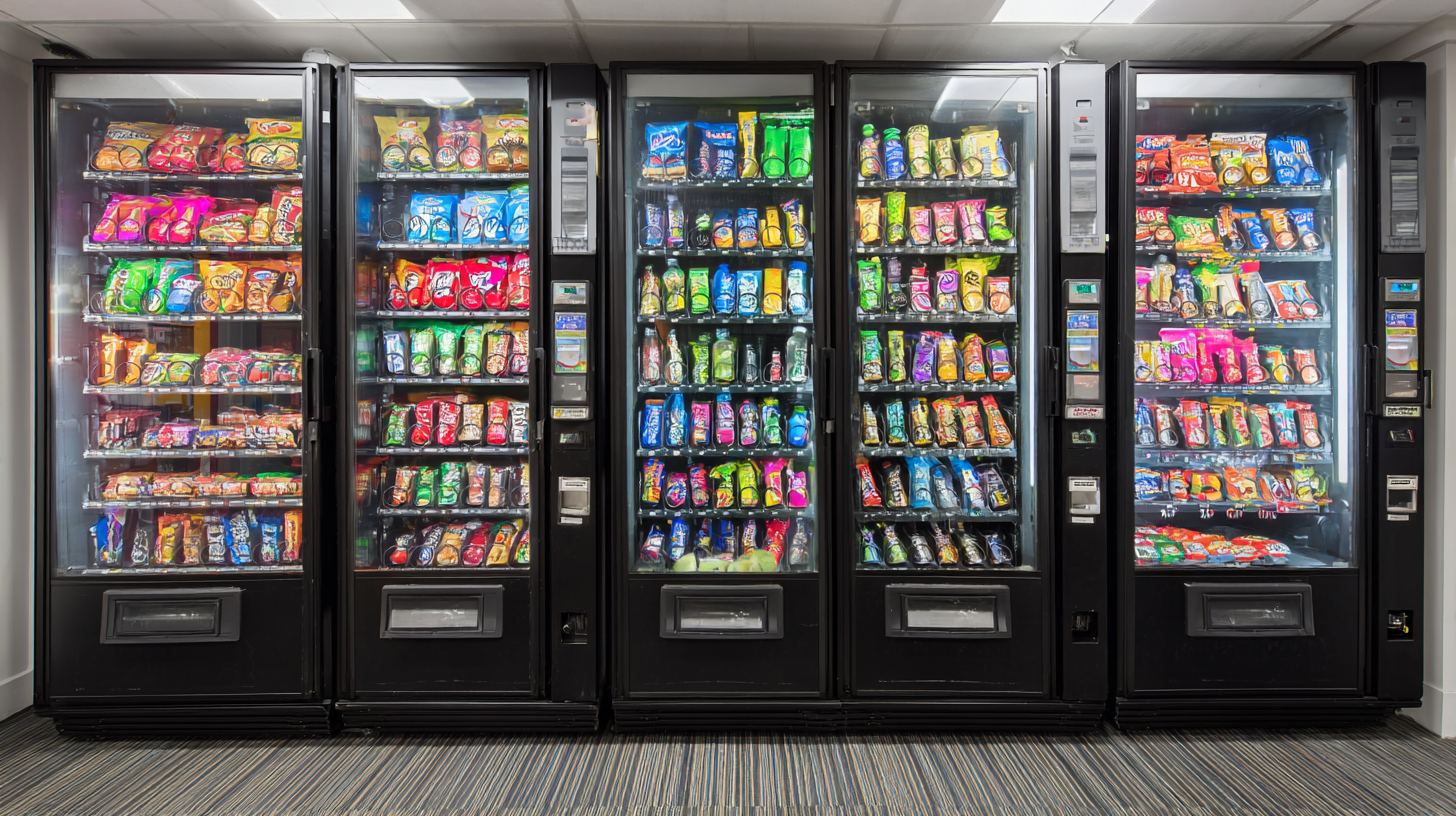Unlocking Global Trade with Essential Import Export Certifications for the Best Commercial Vending Machine
In the rapidly evolving landscape of global trade, the importance of securing essential import-export certifications cannot be overstated, especially for businesses dealing with commercial vending machines. According to a recent report by Grand View Research, the global vending machine market is projected to reach $65 billion by 2027, driven by increased demand for convenience and automated retail solutions. As companies aim to tap into this lucrative market, navigating the complexities of international regulations and certifications becomes crucial for success.

Ensuring compliance with regulations not only facilitates smoother cross-border transactions but also enhances product credibility and consumer trust. This blog will unlock the essential certifications needed to thrive in the global commercial vending machine industry, providing tips and insights for businesses determined to leverage this dynamic market effectively.
The Importance of Import Export Certifications for Global Trade Success
In today's dynamic global marketplace, obtaining the right import-export certifications is crucial for businesses looking to thrive in international trade. These certifications not only ensure compliance with local and international regulations but also enhance credibility in the eyes of partners and consumers. As global trade continues to expand, particularly in sectors like medicinal and aromatic plants, having the necessary certifications can open doors to new markets and opportunities, as highlighted by recent trends analyzed by international trade data.
**Tips:**
- **Understand the Certification Requirements:** Each country has unique regulations regarding import and export certifications. Research and familiarize yourself with the specific requirements for each market where you intend to operate.
- **Stay Updated on Trade Policies:** In light of evolving global trade dynamics, staying informed about changes in trade agreements and tariffs can help mitigate risks associated with compliance. Engaging with trade facilitation organizations can provide valuable insights into best practices.
- **Prioritize Risk Assessment and Compliance:** As you establish your import-export business, assessing potential compliance risks linked to your supply chain is essential. Developing a comprehensive risk management strategy not only safeguards your operations but also enhances your reputation in the market.
Unlocking Global Trade with Essential Import Export Certifications for the Best Commercial Vending Machine
| Certification Type | Description | Importance for Trade | Cost (USD) | Validity Period |
|---|---|---|---|---|
| ISO 9001 | Quality Management System Certification | Enhances customer satisfaction and operational efficiencies | $1,500 - $5,000 | 3 years |
| CE Marking | Conformity Assessment Certification for products sold in the EU | Required for product entry in European markets | $2,000 - $7,000 | Indefinite (as long as compliance is maintained) |
| RoHS | Restriction of Hazardous Substances Certification | Ensures products are free from certain hazardous materials | $1,000 - $3,000 | 3 years |
| FCC Certification | Federal Communications Commission Certification | Necessary for electronic devices to ensure they do not cause harmful interference | $1,500 - $3,000 | Indefinite (as long as compliance is maintained) |
| ETL Certification | Product Safety Testing and Certification | Verifies products meet North American safety standards | $2,000 - $4,000 | 3 years |
Navigating the Certification Process for Commercial Vending Machines
Navigating the certification process for commercial vending machines can be a complex journey, but it is essential for businesses aiming to unlock global trade opportunities. Understanding the various import and export certifications required for these machines ensures compliance with international standards, ultimately paving the way for a smoother market entry. As global demands evolve, manufacturers must be equipped with certifications that not only validate product efficiency but also resonate with environmentally conscious consumers.
One key aspect to consider while navigating this certification landscape is the Enhanced Testing and Verification Program. This recent initiative offers a structured pathway for businesses to meet energy efficiency standards, enhancing their product's marketability. Engaging in comprehensive testing can ultimately save time and resources, allowing manufacturers to highlight their commitment to sustainability. By leveraging these certifications, companies can boost their credibility and appeal to a wider audience, fostering growth in both domestic and international markets.
Global Trade Certifications for Commercial Vending Machines
This chart illustrates the importance of various import-export certifications for commercial vending machines, highlighting the percentage of businesses that prioritize each certification in their operations.
How China's Leading Manufacturing Drives International Trade
China's manufacturing prowess significantly influences international trade dynamics, particularly in sectors like commercial vending machines. According to a report by the China National Bureau of Statistics, manufacturing accounted for approximately 27% of China's GDP in 2021, a testament to its robust industrial framework. This dominance is reflected in the global supply chains, where China is responsible for over 30% of the world's exported goods. As countries increasingly seek efficient solutions for consumer engagement, the demand for advanced commercial vending machines has surged, further bolstered by China's innovative manufacturing capabilities.
Moreover, a study by Statista reveals that the global vending machine market is projected to reach $25 billion by 2026, with a significant portion of machine production originating from China. This trend is not only driven by China's cost-effective production but also by its ability to integrate cutting-edge technology into its machines, such as cashless transactions and IoT connectivity. These advancements pave the way for smoother international trade, as businesses increasingly rely on imports from China to meet the evolving demands of consumers worldwide. As the global marketplace becomes more competitive, understanding the essential import-export certifications will be crucial for businesses looking to capitalize on these opportunities.
Key Certifications That Enhance the Appeal of Chinese Vending Machines
In the competitive landscape of global trade, certifications play a critical role in enhancing the appeal of products, especially in the vending machine industry. Chinese manufacturers of vending machines are increasingly focusing on obtaining essential import-export certifications that not only comply with international standards but also instill confidence among potential buyers. These certifications help streamline the purchasing process for international customers, assuring them of product quality, safety, and sustainability.
As exemplified by the ambitious expansion of a popular Chinese coffee chain, the importance of these certifications cannot be overstated. By ensuring that their vending machines meet global standards, manufacturers can position themselves effectively in foreign markets. This is especially crucial as the brand competes with established players by offering more attractive pricing and innovative solutions. Ultimately, a well-certified vending machine can enhance market entry strategies, facilitating broader acceptance and success in competitive environments.

Future Trends in Global Trade and the Role of Certifications
The landscape of global trade is evolving rapidly, with certifications playing a pivotal role in facilitating international transactions. As per a 2023 report by the International Trade Centre, around 70% of businesses reported that obtaining necessary certifications significantly improved their competitiveness in foreign markets. This trend is particularly evident in the commercial vending machine sector, where compliance with health, safety, and trade regulations is non-negotiable for successful market entry. Ensuring that products meet international standards not only enhances consumer trust but also mitigates the risks associated with cross-border trading.
Moreover, as digital transformation reshapes the supply chain, e-certification is gaining prominence as an efficient way to expedite processes. A recent study by Global Trade Review noted that e-certification adoption can reduce transaction times by up to 30%, thereby streamlining operations for importers and exporters alike. Looking ahead, companies that proactively embrace these certifications and digital solutions are expected to lead the market, capitalizing on the interconnectedness of global trade networks. The alignment of certification standards across borders will likely foster a more resilient and adaptive trading environment, crucial for capitalizing on emerging market opportunities.

